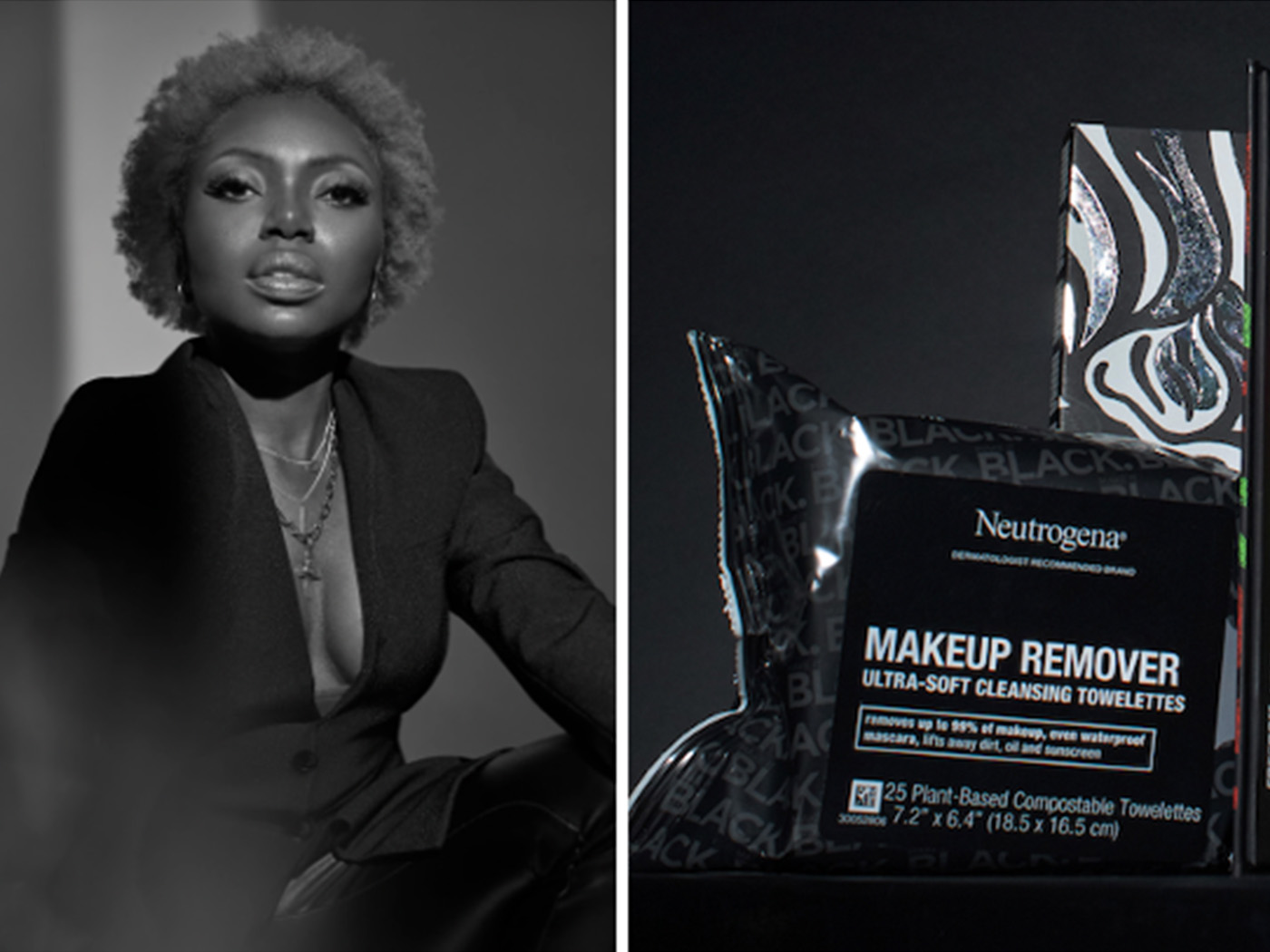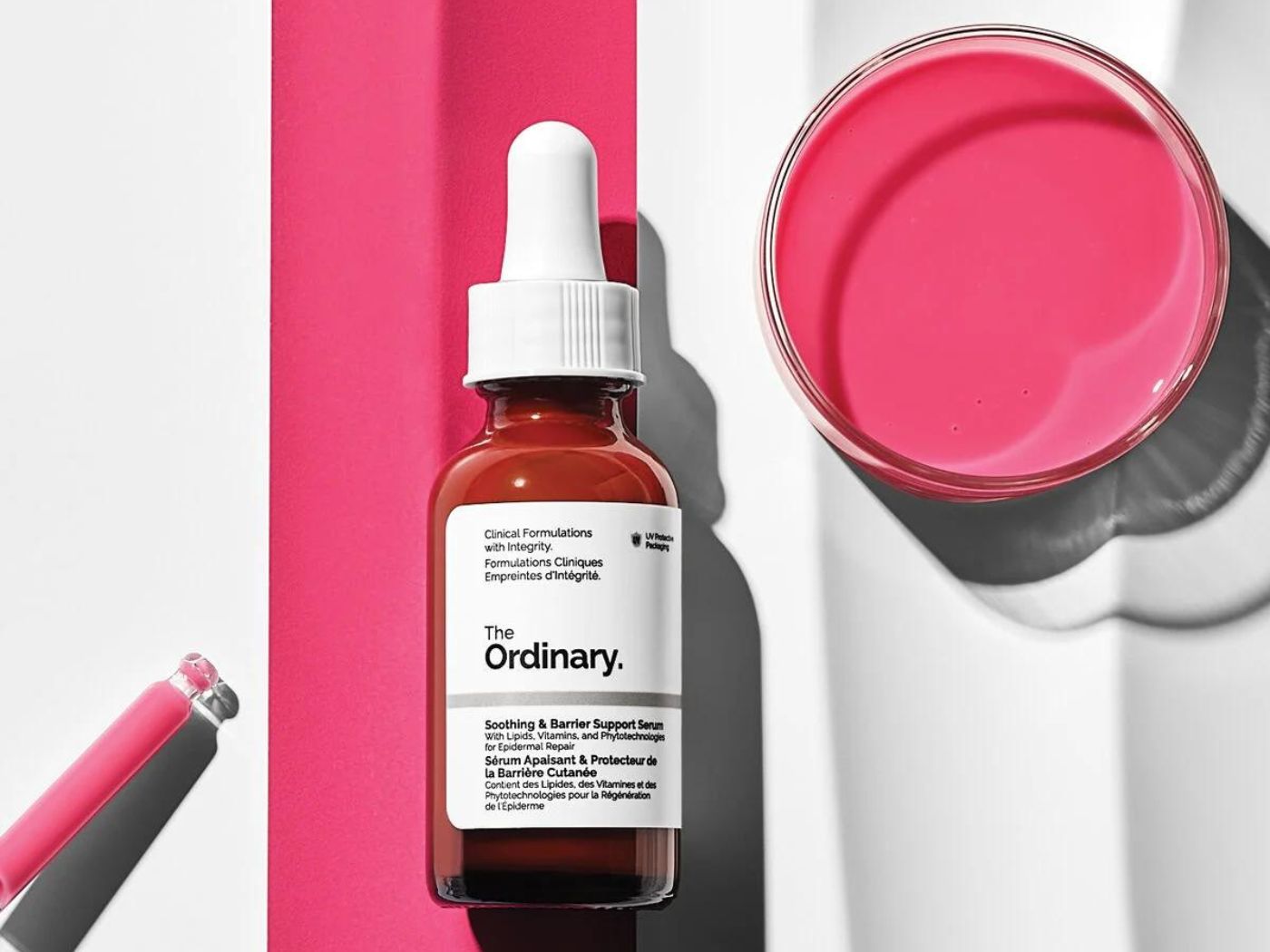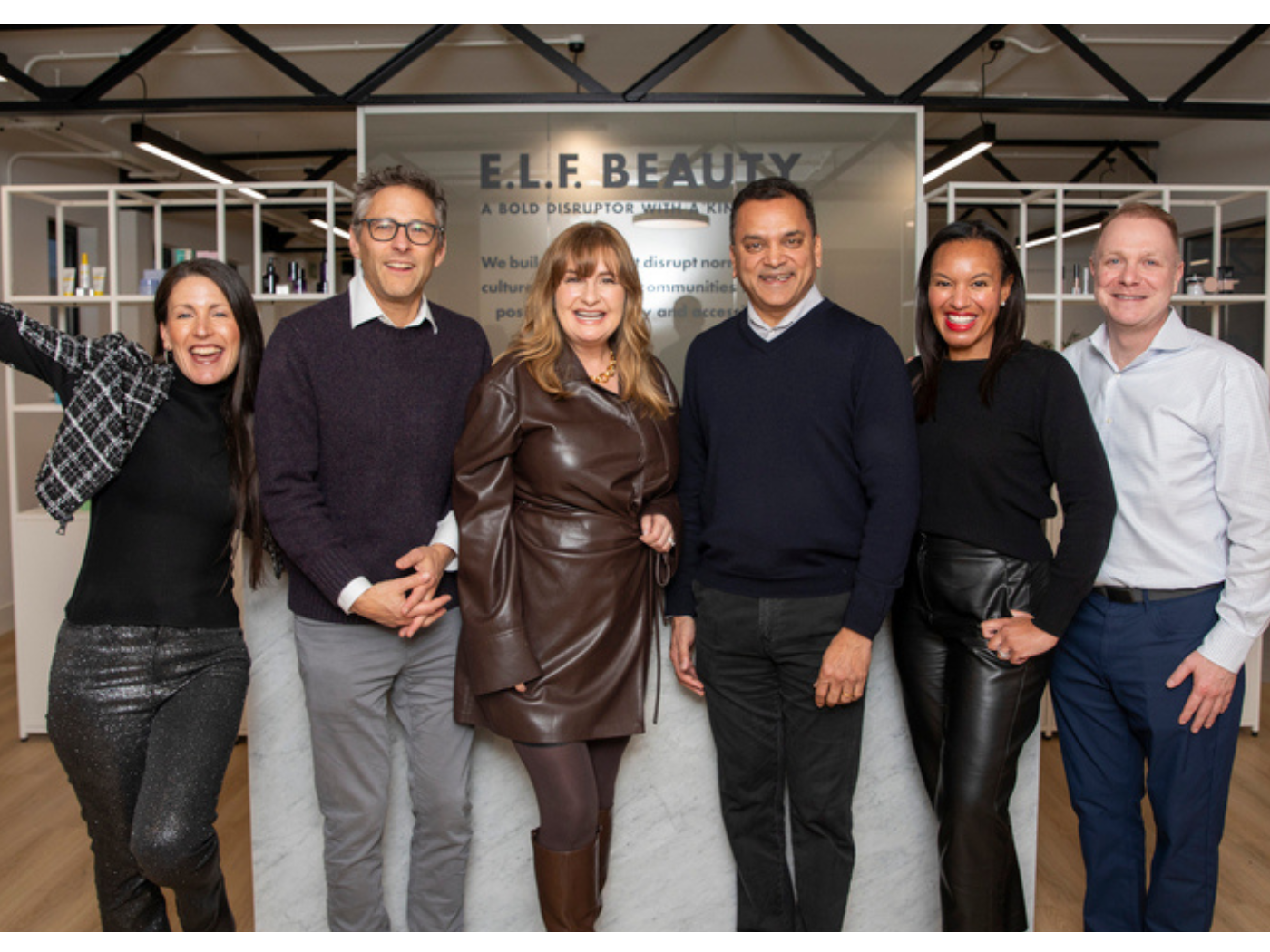“Stay in your lane.”
Any beauty brand or founder who expresses a love for both lipstick and activism has likely heard these four words. But Sharon Chuter, founder of Uoma Beauty and the nonprofit Pull Up for Change — which supports Black founders and economic wellness for Black communities — isn’t having it.
“Yes, I’m wearing lipstick, but I live in the world,” says Sharon. “When people come to buy makeup, are they no longer a Republican or a Democrat? The human is the human. When you’re having this kind of challenging conversation, some people just lump it as, You’re ‘woke.’ We’re not woke in the way people use ‘woke’ now. We’re humanitarian.”
That’s why, in 2021, Sharon debuted the first Make It BLACK campaign, inviting beauty companies to literally turn their products black, be it makeup hues or packaging — along with a change.org petition advocating for updates to the word “black” in the Merriam-Webster and Oxford English dictionaries — to redefine the way the world sees “black.”
Today, Sharon launches the fourth Make It BLACK campaign, featuring limited-edition products whose gross profits go to the Pull Up For Change Impact Fund, which has thus far raised nearly a million dollars for Black beauty founders. This year’s product lineup includes the Black Magic Freedom Palette from Uoma — with five metallic eye-shadow shades and five matte tones; black lipsticks from Uoma, e.l.f., and ColourPop; and, for the first time, Neutrogena, which has transformed the pale-blue packaging of its iconic Makeup Remover Cleansing Towelettes to black. (e.l.f. and ColourPop will donate $10,000 each, and Neutrogena $100,000, to the cause.)
We chatted with Sharon about her goals for the campaign — and the impact she’s had on the beauty industry at large.
CEW: How will this campaign be different from past ones?
Sharon: “This year, we’re not taking a somber approach, we’re taking a celebratory approach. We’re focusing on the beauty of black, why black is beautiful and bold.”
CEW: Why is it so important to change the dictionary definition of the word “black”?
Sharon: “You are the source of language — it must be complete. I want them to include the positives in the definition. There are no positives. There are so many other associations [with the word ‘black.’]. Little black dress [for example]. ‘Back in the black’ means you’re profitable. Black is the symbol of luxury. Black-tie event. Why is it not there? It’s not recognized in the dictionary. Meanwhile, they keep ‘menacing.’ When has anyone used the word ‘black’ [to mean] ‘menacing’ in modern day? If you know how to put ‘bootylicious’ in the dictionary, I’m sure you have time to update the word ‘black.’”
[Editor’s note: Merriam-Webster, among various definitions of “black” as an adjective, includes: “very sad, gloomy, or calamitous”; “indicative of condemnation or discredit”; “distorted or darkened by anger”; “connected with or invoking the supernatural and especially the devil”; and “dirty, soiled.”]
CEW: How will you be promoting the Make It BLACK campaign this year? Will you be heavily on TikTok, as a lot of brands are?
Sharon: “The first year we went very heavy on TikTok, and we’ll come back on TiKTok but with a new, softer approach. You’re talking to very young kids, and people there have 20-second attention spans. When you try to do deep messages, [people on TikTok] will not leave and go research it. They comment based on the 30 seconds, as opposed to what you can do long-form on YouTube where you have 20 to 30 minutes.
“So instead of complex messages, we’ll be making snackable, educational videos and not overloading it in a hugely intellectual way and expecting people to go read ancient scrolls. Instead of generically talking about the dictionaries, we’ll do one video that’s just a timeline of the dictionary. Just education, no assumptions.”
CEW: Will the content mostly be focused around the dictionary definition of “black”?
Sharon: “Some content around the dictionary, but really, we’re focusing more on driving the beauty of black, with historical context. We’ll celebrate Black stories — not just heritage, but Black triumph. We’re going to focus on when we win and how we continue to win. Let’s get Black people gassed up. We’re amazing. Let’s continue to show the world. If the world agrees with us, the dictionary will agree with us eventually.”
CEW: And you’ll do this across social platforms?
Sharon: “TikTok and Instagram and the Meta team really play an active role in supporting the program. We’ll have creators, influencers, and influential people popping up wearing black lipstick.”
CEW: How do you curate the brands for the campaign?
Sharon: “This is a not-for-profit. We are here for a cause. Some brands we won’t work with. Some brands we continue to recruit. We also work with our retail partners to find new brands. Ulta is donating to the fund this year.”
CEW: How successful has this campaign been for the brands that participate?
“[In past campaigns], all products fully sold out at Ulta except for the palettes, because last year was a slow moment for palettes. We don’t ask for consumer feedback, though, because we don’t think of this as a commercial activity. We’ve been trained as marketers to ask about ROI, but we discipline ourselves not to talk about [this campaign] that way. This isn’t about what it’s going to do for your brand. You can’t do this for the press release. We’re not paying the influencers, so brands can’t profit off of it.”
CEW: The Uoma Beauty palette — what does it stand for?
Sharon: “I created it especially for this program. It’s a beautiful palette with the duo-chrome shades. I call it the Freedom Palette. A lot of the Black community use red and green because they’re the colors of the Ethiopian flag. Ethiopia is one of the only African countries that wasn’t colonized, so it became the symbol of freedom. The names of the shades are of Black men who have moved us forward, from Marcus Garvey to Martin Luther King to Malcom X, and Tupac, who was a great activist.”
CEW: Which is your favorite shade?
Sharon: “You’re asking me to pick one of my children! That’s impossible. I just love them all. The duo-chrome shades represent the complexity of us. The softness of us. The strength. Duo-chrome represents rhythm. You can do a smoky eye and look like a goddess, or an everyday look. Give yourself a spin, and the dimension changes. That represents a change of who we are, how dynamic we are, and complex.”
CEW: How do you see makeup and activism together?
Sharon: “As a creator, I consider myself an artist. Your art must be reflective of the time you live in. That’s what people remember. It’s that melancholy. One of my favorite songs is ‘Hallelujah.’ The first version was gospel and the second was sexual — two things that are taboo, religion and sex. When you make art like that, it’s powerful and it’s real, because you’re tapping into the human experience.
“When I started [this campaign] in 2021, it had also been during the peak of my brand, Uoma, scaling. I’ve now established a leadership team and a senior C-suite team [so I can] pull back from my for-profit biz. I want to spend more time in DC on policy to protect Black people.”
CEW: With the Pull Up for Change fund, do you choose which founders get grants?
Sharon: “We have a pitch contest and make everything extremely democratic. We have different grants: 10k and 100k. For 100k, we need to see more sophistication; you’re already at a point where you have traction. We have our retailers as judges, too. We had Walmart and the people from Ipsy as judges [in the past]. Next year, we’ll have Ulta as judges.”
CEW: How many founders have you invested money in through this campaign?
Sharon: “We have funded nine founders now. [One is] Undefined Beauty; she’s scaled into Walmart and Ulta. We have SK+N/MUSE , who’s now been able to get investment from [VC firm] Andreessen Horowitz. Peak and Valley — they use mushrooms to make wellness supplements. One of the founders we invested in last year created a proprietary system for braiding. I catch up with [the founders] every three months to give advice. That’s my favorite part of the program.”
CEW: Other than purchasing the products, how can people support the campaign?
Sharon: “Go sign the petition, and we’ll make the trouble on their behalf! Each petition we get, we turn it into a letter. Next week, we’re mailing another 7½ thousand to each of the dictionaries. I’ll keep doing that every single year until they come in to have a dialogue.”
CEW: Coty just launched a petition to change the dictionary definition of the word “beauty.” As Coty’s CEO put it, “Seen through the lens of today’s society and values, the definition of beauty hasn’t aged well… The implicit ageism and sexism in the examples were born in a different time.” What are your thoughts about this?
Sharon: “When I first came in with my activism in beauty in 2019, the first article [about it] was scathing. I was called divisive. It was a gamble, but for me it wasn’t a gamble — it was what I wanted to do. The code for beauty then was you don’t talk about serious things because of distraction, and now, in 2023, we’re seeing Coty write a letter to the dictionary, and YSL Beauty is talking about how to spot abuse: YSL Abuse Campaign. We’ve impacted and influenced the industry, we’re seeing the halo effect, that now conglomerates want to be activists. I’m excited.”
To purchase the limited-edition Make It BLACK products, visit the brand sites for Uoma Beauty, e.l.f. Cosmetics, ColourPop, and Neutrogena through February. The Neutrogena wipes can also be found at Walmart and Meijer locations.




